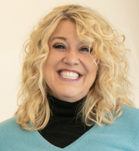

I Have a Brain Tumor. Now What? Ways to Handle a Diagnosis. (Part 2 of 2)
by Sharmyn McGraw
There are many effective treatment opinions nowadays for brain tumors and brain cancers. Sometimes staying focused on the right treatment plan for you or your loved one may involve a change of treatment plans periodically. It is normal to feel anxiety and experience the signs of losing focus.
KEEPING A BROAD PERSPECTIVE
There are times when everyone gets overwhelmed so keeping a broad perspective is helpful on the most challenging days. The goal is to beat the disease, and with that we know there will be difficult times. However, there are always ways to deal with even the hardest days and here are some actions that can bring back the best quality of life for the patient and family. I have used these techniques over the years and I know they work.
Breathe
 There is scientific evidence which shows that meditation can affect cancer survivors at a cellular level. Don’t worry if you can’t sit and meditate, breathing slowly and deeply has a relaxing effect reducing your stress levels. Take a few minutes in your day to close your eyes and calm your breath, thinking about something peaceful and happy.
There is scientific evidence which shows that meditation can affect cancer survivors at a cellular level. Don’t worry if you can’t sit and meditate, breathing slowly and deeply has a relaxing effect reducing your stress levels. Take a few minutes in your day to close your eyes and calm your breath, thinking about something peaceful and happy.
I highly recommend this ReImagine video for relaxing and meditation.
Patti Johnson, PsyD, one of my favorite mental health professionals, often donates her time to speak for our pituitary tumor patient support group. Dr. Patti has written three papers on dealing with stress. They are excellent and I recommend printing them out and carrying them around with you. Read them every day, especially when you start to feel overwhelmed.
· If the Thought is Bogus, You Need to Refocus!
“Do not anticipate trouble or worry about what may never happen. Keep in the sunlight.” ~Benjamin Franklin
Stay Focused With a Fun Diversion
 We know some days are more challenging than others. On those days, you may need a diversion. Sometimes we have to divert our attention to help us stay focused on the bigger picture. A distraction or a change in environment can often help quickly balance our emotions. Walk the dog, go to a park or drive to the ocean. Watch a funny movie – one that makes you laugh until your sides hurt. Read a good book – one that’s uplifting but not too intense. This is not the time to read Facebook posts from other patients, or books about the disease. This is your time, time to do whatever it takes to re-focus and keep your thoughts on what’s best for you to beat the diagnosis.
We know some days are more challenging than others. On those days, you may need a diversion. Sometimes we have to divert our attention to help us stay focused on the bigger picture. A distraction or a change in environment can often help quickly balance our emotions. Walk the dog, go to a park or drive to the ocean. Watch a funny movie – one that makes you laugh until your sides hurt. Read a good book – one that’s uplifting but not too intense. This is not the time to read Facebook posts from other patients, or books about the disease. This is your time, time to do whatever it takes to re-focus and keep your thoughts on what’s best for you to beat the diagnosis.
“I started concentrating so hard on my vision that I lost sight.”
~Robin Green
Move Around
 If you are able to exercise, start to move. Make it part of your routine; the endorphins released will give you a sense of wellbeing. Even doing something light will feel like a victory.
If you are able to exercise, start to move. Make it part of your routine; the endorphins released will give you a sense of wellbeing. Even doing something light will feel like a victory.
“I was discouraged because the holes on the soles of my shoes made it difficult to walk but as I began to be grateful for my feet I suddenly realized God had already given me wings to fly!”
~Sharmyn McGraw
Journal of Gratitude
Writing is a therapeutic way of working out how you are feeling and can provide some health benefits. You can choose to keep a journal, but just as valid, and perhaps more freeing, is to scribble whatever you want on a piece of paper, and then crumple it up and throw it away. We can’t have two thoughts at the same time, when you start to feel everything going on is just too much, grab a pen and paper, and write a story about yourself. Make yourself the healthy, happy hero! Write about all the things you love about life. It’s fiction, so go crazy. Keep writing even if it’s just a few words, like, “I Feel Great!” write it over and over until you start to feel better and more empowered. My favorite thing to write about is all that I’m grateful for. Some people may have a hard time at first with finding something, but if that’s the case, simply write how grateful you are for your breath.
“You simply will not be the same person two months from now after consciously giving thanks each day for the abundance that exists in your life. And you will have set in motion an ancient spiritual law: the more you have and are grateful for, the more will be given you.”
~Sarah Ban Breathnach
 I hope that you find these resources helpful and will be able to incorporate some of them into your life.
I hope that you find these resources helpful and will be able to incorporate some of them into your life.
Ronald Glasser, MD writes, “It is the body that is the hero, not science not antibiotics, not machines or new devices. The task of the physician today is what it has always been, to help the body do what it has learned so well to do on its own during its unending struggle for survival to heal itself. It is the body, not medicine, which is the hero.”
Studies show that it is those with a conscious creative mind, who are most likely to recover from an illness. Thoughts create feelings, which in turn create a response, an action or reaction. Happy, positive thoughts promote healing!
Many blessings my friends,
Sharmyn McGraw
Patient Advocate, Community Outreach
ORGANIZATIONS AND RESOURCES
ReImagine, a comprehensive resource
Be Inspired: Always seek to be inspired, here’s a list of my personal favorites.
OWN Channel- Oprah Winfrey Network
Supper Soul Sundays
Master Class
YouTube:
TED Talks (multiple of recordings)
Ester Hicks-Wisdom of Abraham, (multiple of recordings)
Byron Katie’s Interview with Oprah
Shawn Achor, PhD Harvard professor, “Positive Psychology-Happiness”
Jim Carrey, MUM Commencement Speech, 2014
Books:
Wayne Dyer, all his books are worth reading
Byron Katie; “Loving What Is”
Steve Harvey: “Act Like a Success, Think Like a Success—Discovering Your Gift and the Way to Life’s Riches”
Rick Hanson, PhD, “Hardwiring Happiness”
Barbara Hoberman Levine, “Your Body Believes Every word You Say”
Don Miguel Ruiz, “The Four Agreements”
Paulo Coelho, “The Alchemist”
Danea Horn, “Chronic Resilience”
Hormone Factor, Linda Rio Editor, Chapter 13, Sharmyn, Dr. Kelly & Dr. Cohan.
Bernie Siegel, MD
About the Author

Sharmyn McGraw
Sharmyn McGraw is a patient advocate, charismatic professional speaker and published author. She has first-hand experience as a Cushing’s disease survivor and often collaborates with nationally-recognized neuro-endocrine experts, sharing the speaker’s platform while educating patients and doctors about neuroendocrine hormonal disorders and their impact on our health as a nation. Sharmyn facilitates the largest pituitary patient support group in the country for the Pacific Neuroscience Institute.
Last updated: November 19th, 2021